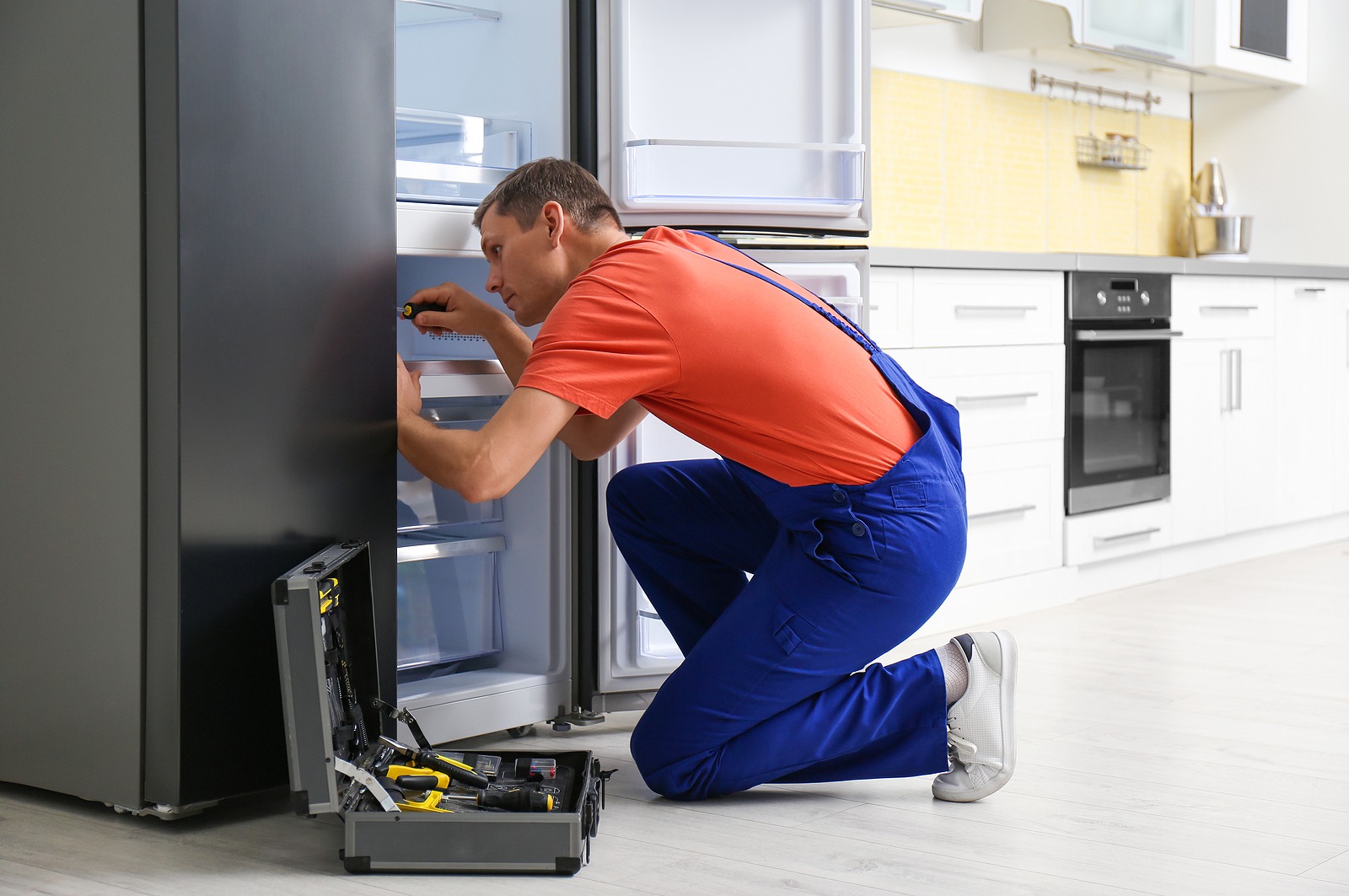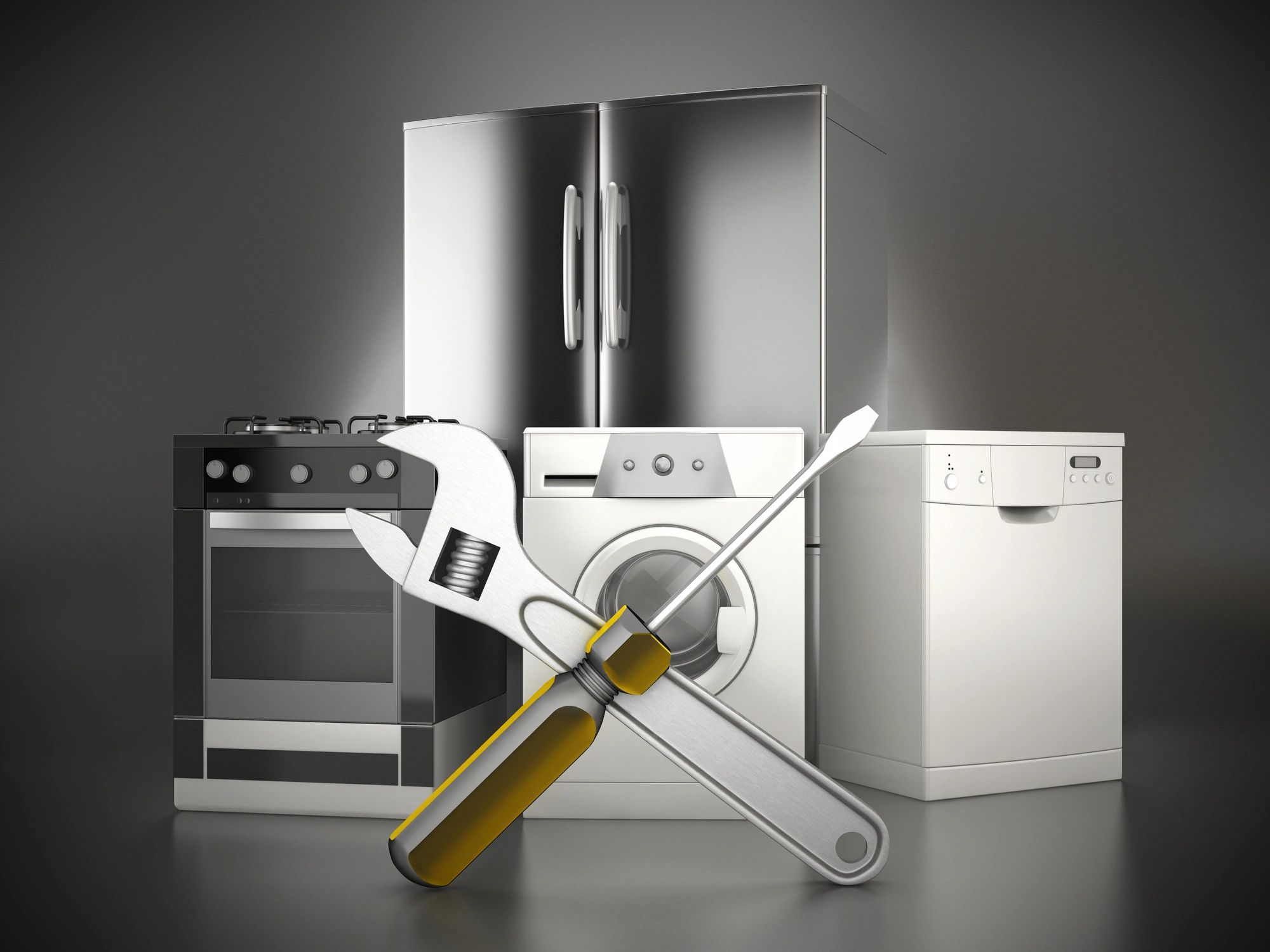The Ultimate Overview to Understanding Device Repair Work in your home
When your refrigerator quits cooling or your stove declines to heat, it can really feel overwhelming. Understanding device fixing in the house can conserve you money and time. You'll discover to recognize symptoms, utilize crucial tools, and adhere to an organized troubleshooting process. Before you begin, there are critical safety and security precautions you need to take right into account. What are the most usual troubles, and just how can you fix them? Let's check out the basics.
Typical Home Appliance Troubles and Their Symptoms
When your home appliances begin breaking down, it's vital to recognize the indicators beforehand. Neglecting them can cause larger issues and costly repair work. As an example, if your refrigerator isn't cooling effectively, you might see cozy areas or condensation forming. This can suggest a stopping working compressor or a blocked vent.Your dishwashing machine may show troubles through dirty dishes or uncommon sounds during cycles. If you listen to grinding or clanking, it's time to investigate.A cleaning equipment that will not rotate or drain pipes can leave you with soggy washing, recommending a blocked drainpipe or a malfunctioning pump.Lastly, if your stove's temperature level appears off or it takes for life to pre-heat, you could be handling a defective thermostat. By staying sharp to these signs and symptoms, you can resolve issues prior to they escalate right into major fixings.
Important Tools for Appliance Repair
When you're dealing with home appliance repair services in your home, having the right tools is vital. Basic hand devices like screwdrivers and pliers will certainly help you take apart and fix various devices, while electrical testing devices assure you're working safely with wiring. Allow's discuss what you need to start on your repair service journey.
Fundamental Hand Devices
Having the right tools is vital for reliable device repair service in your home. Beginning with a trustworthy screwdriver set, consisting of both flathead and Phillips kinds, as screws are usual in home appliance assembly. Pliers are additionally important; they assist with gripping, turning, and cutting cables or little parts. A pair of needle-nose pliers can get to difficult situations conveniently. You'll require an excellent adjustable wrench for tightening up or loosening nuts and screws. An energy knife comes in handy for puncturing packaging or insulation. Ultimately, don't forget a tough workbench or surface area to securely organize your devices and parts. With these standard hand tools, you'll be well-prepared to take on most appliance repair services that come your way.
Electric Testing Devices
Alongside standard hand tools, electric testing devices play a vital role in appliance fixing. These devices help you detect electrical concerns and warranty appliances work securely. A multimeter is important; it determines voltage, present, and resistance, enabling you to pinpoint troubles rapidly. A non-contact voltage tester is an additional must-have, letting you discover online cords without making straight call, enhancing your security. Secure meters are fantastic for determining existing flow in wires without detaching them, conserving you effort and time. Additionally, circuit testers can rapidly inspect if electrical outlets are operating effectively. By utilizing these devices, you'll streamline your troubleshooting procedure and boost your repair work abilities, making device maintenance a whole lot less complicated.
Step-by-Step Overview to Diagnosing Appliance Issues
When your device acts up, it can be irritating, yet diagnosing the issue does not need to be frustrating. You'll find out to identify typical troubles and apply effective fixing strategies. Allow's go through the actions to obtain your home appliance back in working order.
Typical Device Troubles

Troubleshooting Strategies Explained

Fixing Significant Kitchen Area Appliances: A Closer Look
Have you ever before wondered exactly how to take on common concerns with your kitchen area devices? Fixing major cooking area home appliances like refrigerators, stoves, and dishwashers can be easier than you assume. Start by recognizing the issue-- whether it's a refrigerator not cooling or a stove that will not heat up. Typically, a straightforward reset or inspecting the source of power can solve the issue.For fridges, clean the condenser coils and inspect the door seals. If your oven's not home heating, inspect the home heating component and thermostat. Dishwashing machines may just require a tidy filter or a reset to get them back at work. Constantly disconnect the appliance prior to diving into repair work to assure your safety.Don' t fail to remember to seek advice from the user manual for specific fixing tips associated with your version. With a little bit of persistence and the right devices, you can confidently deal with device repair work and conserve cash while doing so!

Troubleshooting Laundry Equipments: Tips and Techniques
When your laundry devices begin breaking down, it can really feel frustrating, yet troubleshooting them doesn't have to be a problem. Start by inspecting the power supply. Confirm the device is connected in and the electrical outlet is operating. Next off, check the door or lid button; a damaged switch can prevent the machine from operating.For washing machines, if it's not rotating, check for out of balance loads. Redistributing the clothing could solve the concern. If your dryer isn't heating, tidy the dust filter and examine the air vent for blockages.Listen for uncommon sounds; they can indicate an issue. If your appliance is leaking, check the pipes for splits or loosened connections. File any type of mistake codes presented on digital displays, as they can lead you in determining the problem. Seek advice from the customer manual for particular fixing ideas associated to your model.
Security Preventative Measures to Take Throughout Services
Prior to you begin any home appliance repair work, it's vital to focus on security to avoid crashes or injuries. Initially, disconnect the home appliance or transform off the breaker to assure no power reaches it while you my latest blog post function. Usage shielded devices to decrease the danger of electric shock. Put on security goggles and gloves to shield on your own from sharp sides or debris (Dependable Refrigeration & Appliance Repair Service Dryer repair near me).Make certain your work space is neat and well-lit, so you can see what you're doing. Keep youngsters and family pets away from the location to prevent interruptions and prospective hazards. If you're handling gas home appliances, be extra careful; check for leaks prior to proceeding.Take your time, and don't rush via repair work. If you really feel uncertain regarding any type of step, it's far better to pause and study than to guess. Adhering to these precautions will certainly assist produce a safer atmosphere for your do it yourself appliance fixing project
When to Call an Expert for Aid
Just how do you know if it's time to contact an expert for home appliance fixings? If you've tried standard troubleshooting without success, it's a clear indicator. If your device still won't start or shows unusual sounds after resetting it, don't hesitate to seek professional help.When you discover leakages, smoke, or burning scents, prioritize safety and security and call a professional right away. These issues can lead to more substantial damage or posture threats to your home.Also, if your appliance is under warranty, getting in touch with an expert is often the very best path. They can ensure that fixings will not invalidate your warranty, saving you cash in the long run.Finally, if you're unsure or uneasy with complex repairs, it's smart to leave it to the professionals. Keep in mind, taking on difficult concerns without the ideal knowledge can cause expensive blunders. Trust a professional when doubtful!
Frequently Asked Questions
Just How Can I Prevent Appliance Troubles in the Future?
To stop appliance problems in the future, you should perform regular upkeep, check for wear and tear, clean filters, and stay clear of overloading. Remaining positive will help prolong their life expectancy and keep them running efficiently.
What Are the Many Common DIY Device Repair Mistakes?
You might neglect security preventative measures, miss repairing steps, or make use of inaccurate tools when trying do it yourself device fixings. Hurrying the process or overlooking supplier standards can lead to even more significant problems and expensive mistakes. Remain individual and educated!
Exactly how Do I Know if a Component Needs Replacement?
You can tell if a part requires substitute by looking for unusual sounds, leaks, or inconsistent efficiency. If the device struggles to operate correctly or shows original site visible damage, it's most likely time for a substitute.
Can I Utilize Generic Parts for Appliance Services?
Yes, you can use common components for device repairs, but identify they work - Lg Dryer repair near me Dependable Refrigeration & Appliance Repair Service. Generic parts may conserve you money, but they can influence performance or long life, so consider your choices meticulously prior to choosing
What Warranties Cover Home Appliance Fixes?
Most appliance guarantees cover repair services for making issues, yet they frequently omit damage from misuse. Examine your service warranty terms very carefully, as some may require using qualified technicians and initial components for coverage to stay legitimate.